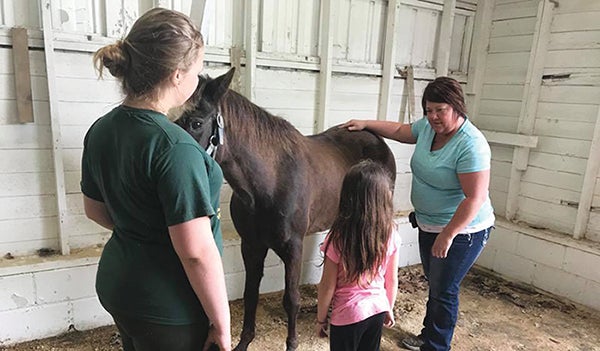Michigan 4-H eliminates participation fee
Published 3:19 pm Thursday, June 17, 2021
|
Getting your Trinity Audio player ready...
|
As 4-H programs across the state return to in-person engagements, there is one thing that will not be returning to Michigan 4-H this year: the 4-H participation fee.
Michigan State University Extension announced the elimination of the $20 fee for its flagship youth development program in an effort to better serve all youth across the state.
“We’re excited to share this good news with children and their families across the state,” said Jake DeDecker, state leader for Michigan 4-H programs. “We feel this move helps get us closer to our mission of providing all youth ages 5-19 with the opportunity to take part in the life-changing experiences of 4-H.”
The 4-H participation fee was first launched in 2006 to help offset declining levels of funding at the state and county level. In light of the hardships placed on many families due to the COVID-19 pandemic, MSU Extension chose to pause the collection of the fee for the 2020-2021 programming year. Since then, MSU Extension has used this pause to reflect on the fee structure and its role in 4-H participation across the state.
“Since the participation fee was implemented, we have been very vocal that we would never turn away any youth who wanted to participate, regardless of their ability to pay the fee,” explained DeDecker. “We’ve always offered scholarships to cover this expense, yet we learned that for various reasons, this fee remained a barrier for some potential youth and their families. This information made it easy to determine what the appropriate course of action was: remove the fee to increase everyone’s access to the power of 4-H.”
MSU Extension 4-H program coordinators, 4-H professionals who serve alongside youth in communities across the state, were instrumental in helping leadership reach this decision. These individuals championed the removal of the participation fee as they seek to better reach under-served audiences in rural, urban and suburban communities.
“We’re excited by the potential this change holds,” DeDecker said. “From the partnerships that can be developed, the new youth who will enjoy our program for the first time, and the friendships that can be forged between current and future 4-H’ers, there is so much this adjustment can help us to grow with 4-H.”
Though the 4-H participation fee has played a key role in supporting the growth and development of 4-H programs for many years, Michigan 4-H has identified alternative funding sources that can support both county and state programing initiatives previously enhanced by participation fee dollars. This includes endowments, grants, reallocating funds formerly used for 4-H participation fee scholarships and other methods. The quality and quantity of programming offered by Michigan 4-H will not be diminished as a result of the fee dissolution.







